Charity receives funding to electrify fleet
A charity helping elderly people across Dumfries and Galloway has been awarded £100,000 from SP Energy Networks’ Net Zero Fund to electrify its fleet of delivery vehicles.
Food Train’s Stewartry branch offers a range of essential services to help those who are no longer able to manage independently, with volunteer drivers making nearly hundred grocery deliveries every week to older members of the local community.
The funding will allow Food Train to upgrade its existing two diesel delivery vans to new electric models, along with installing an onsite charging point at its Castle Douglas base to ensure the team always has access to reliable green transport.
Scott Mathieson, network planning and regulation director at SP Energy Networks, said: “We are a long-term champion of Food Train and the vital support it provides, having previously supported the charity through our Green Economy Fund.
“From speaking to those who use the service, it’s immediately clear to see the difference it makes in people’s lives, and we’re delighted to play a part in making that happen. These new electric vehicles will allow the team to continue to get out on the road every day without having to worry about the environmental impact.
“Our next funding round is now open, and we’re welcoming applications from eligible charities and community groups looking to accelerate their net zero plans.”
The charity is one of the recipients of SP Energy Networks’ Net Zero Fund – a £5 million funding pot designed to support vulnerable communities across central and southern Scotland.
Infrastructure sharing platform Evata enables electric fleet collaboration
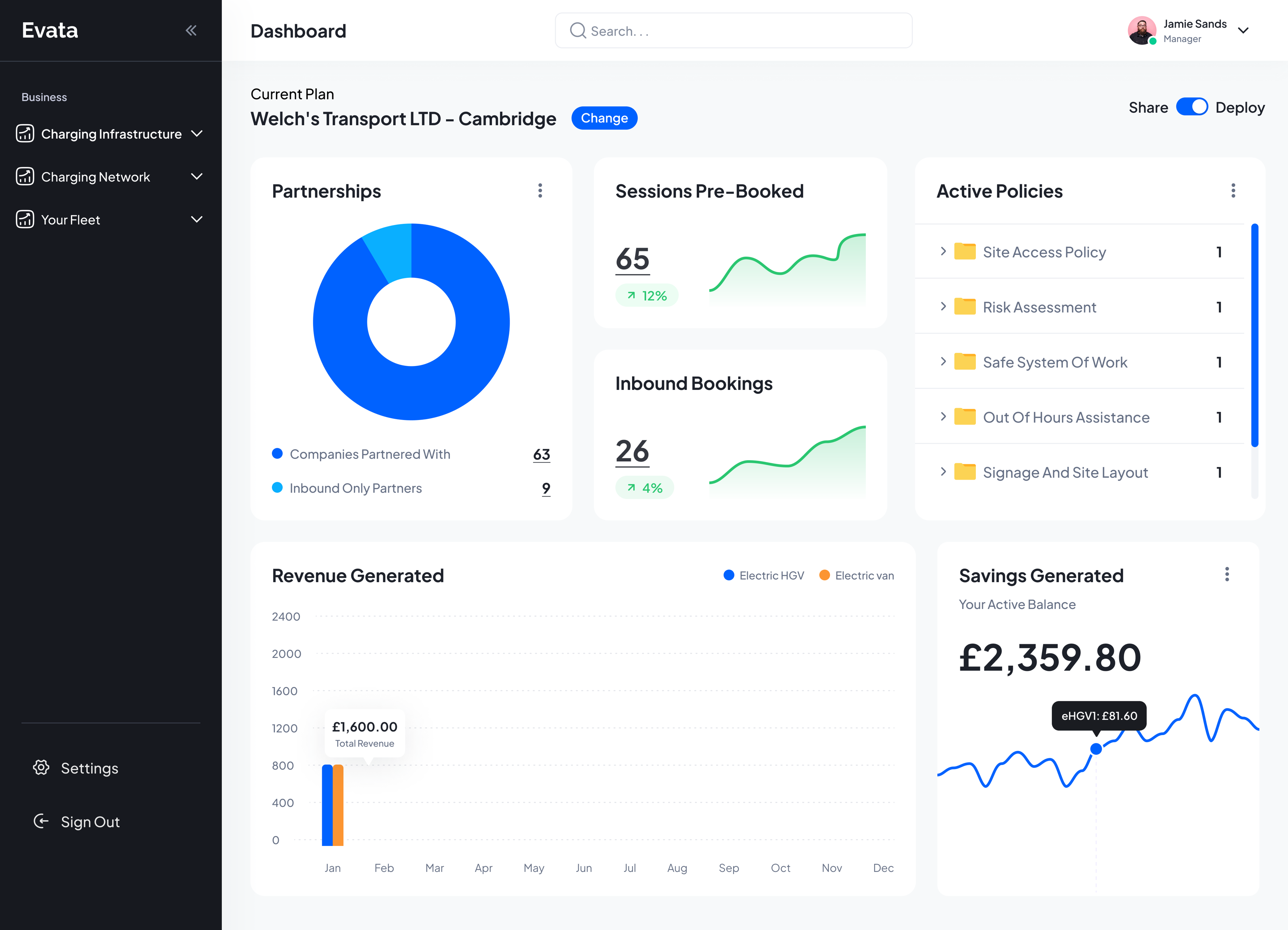
Evata has launched an infrastructure sharing platform to help drive fleet electrification and avoid having to use the public charging network.
Central to the start-up's offering is the ability for fleet operators to use third-party sites to host portable charging infrastructure, serving the operators' charging requirements.
Shakeel Ali, co-founder of Evata: “Present-day solutions result in fleets having limited options to easily charge vehicles at public facilities, hindering electrification plans beyond the low hanging fruit.
“Ultimately, in the use case of complex duty cycles - vans, delivery trucks, commercial vehicles etc. - they are required to shoe-horn fleet operations into an existing model which isn’t suitable, nor economical. Slowing the transition to electrification.
“That is why we are providing an alternative to the public charging network, where infrastructure is located, priced and bookable all based on individual fleet needs.
“This means enabling access to shared infrastructure where operators can negotiate how much they pay for charging, which will never exceed £0.52/kWh.”
Jaeson Blythe, Evata chief technology officer, said: “Our platform allows charging infrastructure to be hosted by third parties where a fleet needs it, with our technology demonstrating a potential 73% saving in downtime when compared with using the public charging network.”
Evata is an infrastructure sharing platform, dedicated to commercial fleets. The platform provides an alternative to the public charging network, which is bookable, whilst also providing fleets with the ability to negotiate how much they pay for accessing charging.
Further growth in EV qualified automotive aftermarket workforce
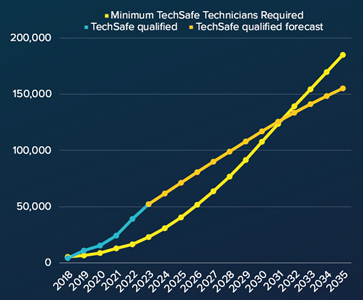
The latest EV TechSafe data from the Institute of the Motor Industry (IMI) shows more than 50,000 qualified electric vehicle (EV) technicians in the UK.
Previous projections suggested a shortfall would appear in 2029 and reach 13,000 by 2032. However, the latest analysis predicts the skills gap will only materialise in 2032 with a gap of 5,670.
At the end of January 2023, there were 52,000 qualified EV technicians in the UK, representing 22% of all technicians in the country.
The figure stood at 45,300 just six months earlier.
Emma Carrigy, research manager at the IMI, said: “It is encouraging to see the steady growth in EV qualified workforce, especially as the market need is now expected to be met for a least another five years.
“Of course, attracting new talent and training technicians to work safely on electrified vehicles does take time, so the industry must not be complacent or take its foot off the recruitment or training pedals.
“After all, a skills gap is still forecast and could have a significant impact on drivers’ ability to maintain and repair their electric and hybrid vehicles safely.”
The IMI predicts that by 2030 the sector will need more than 107,000 EV trained technicians, increasing to 139,000 by 2032, and 185,000 by 2035.
If current training trends continue, it is expected that there will be a shortfall of 30,000 EV qualified technicians by the time the ban of new ICE vehicle sales comes into force in 2035.
Electric Car Scheme achieves B Corp certification

The Electric Car Scheme has announced its certification as B Corporation after an extensive certification period.
It makes the firm the one of the first electric vehicle (EV) salary sacrifice providers to be acknowledged for its commitment to being a force for good in the world of work.
Applicants require a minimum score of 80 from the B Corp certification team – the Electric Car Scheme scored 104.3. This score will be continually updated as the business works with B Lab to ensure that their work continues to address social and environmental problems globally.
The application is rigorous, with only 8,000 businesses out of over 200,000 applications being certified. There are currently only 1,500 B Corp certified businesses in the UK, or just 0.027% of all UK firms.
Electric Car Scheme CEO and co-founder, Thom Groot (pictured), said: “This recognition represents not just a successful application; it's a testament to our dedication to transparency, accountability, and profound sense of purpose. We believe that, as a B Corp, we can inspire others in our industry to embrace responsible business practices, fostering positive change on a global scale.”
Ionity opens first high-power EV charging site in Northern Ireland
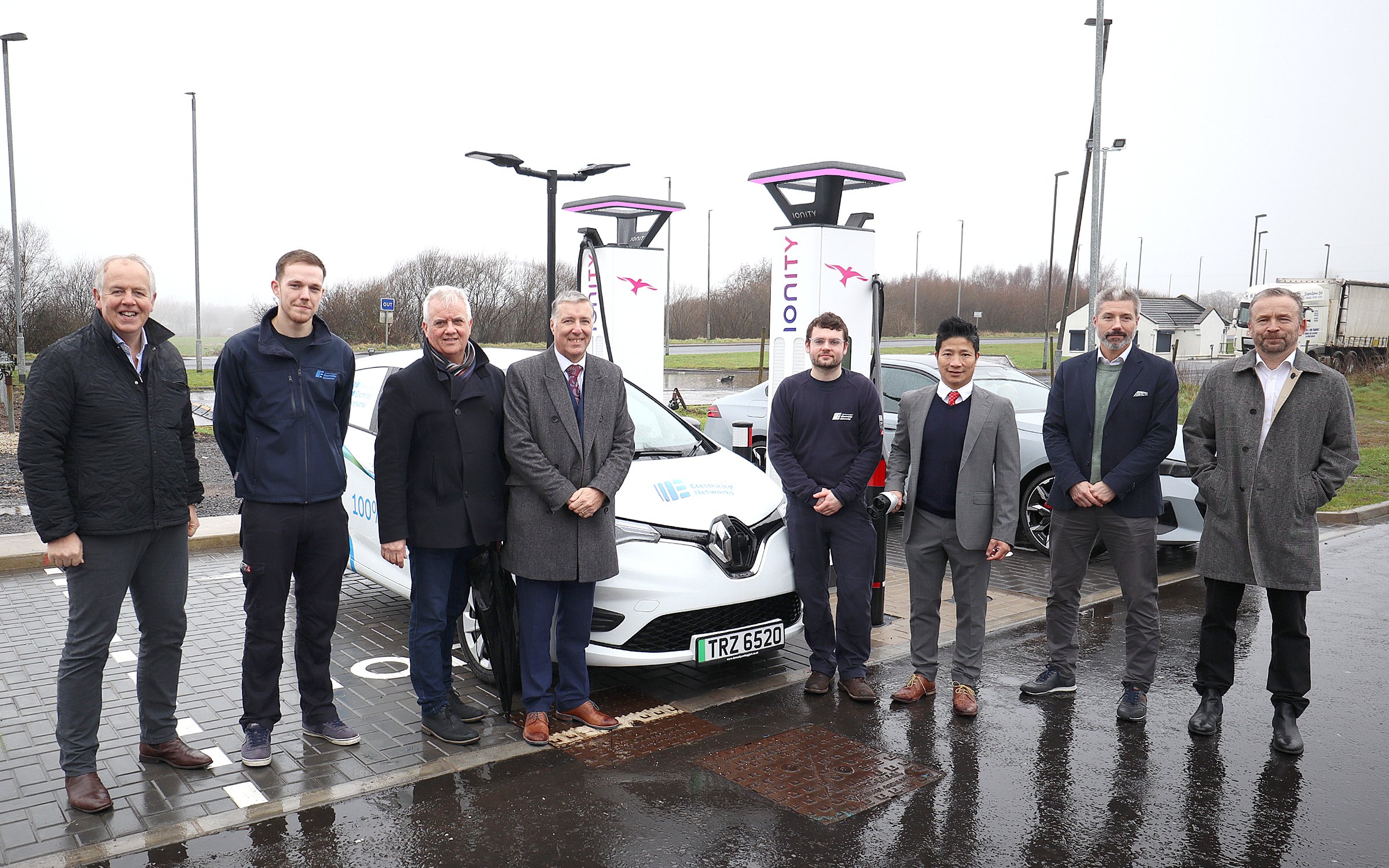
Ionity has opened its first public electric vehicle (EV) high-power charging site in Northern Ireland. Toome Motorway Service Station provides access to six 350kW chargers. The site opening was supported by NIE Networks.
Depending on charging demand, Ionity plans to add more chargers in the future.
Country manager for the UK and Ireland, Andreas Atkins, said: “Opening our first site in Northern Ireland is an exciting nod to our investment in the country to help decarbonise mobility and make EV charging accessible to everyone visiting or living in Northern Ireland.”
NIE Networks worked with Ionity from the project design stage right through to the construction and connection of the site.
Ian Craig, major projects stakeholder lead at NIE Networks, said: “NIE Networks is delighted to play our part in helping Northern Ireland move towards net zero by connecting the first high powered EV Charging site in Toome.”
APCOA named as supplier through NEPO EV charging framework
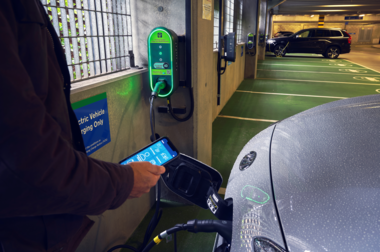
APCOA has been named as suppliers within the North East Procurement Organisation (NEPO) EV charging framework agreement for the public sector.
The framework, available to all local authorities and public sector organisations nationwide, covers both the operation and maintenance of new EV infrastructure and is designed to boost investment in this sector and positively impact on the pace of EV rollout in the North East and across the whole of the UK.
APCOA’s regional managing director for the UK and Ireland and group ESG director, Kim Challis, said: “APCOA is already a trusted provider of key services to more than 60 different local authorities and public sector organisations and now, through the NEPO framework, our expertise in delivering end-to-end EV services will help to accelerate the provision of reliable EV infrastructure to support communities and benefit the environment.”
EV infrastructure training course launching for local authorities

A new UK Government-funded electric vehicle infrastructure training course will be launched in March to upskill local authority officers as they coordinate the deployment of public charging infrastructure.
Applications are now open for cohorts to sign up to the course. Additional courses are planned for September 2024 and January 2025.
One place per tier-one local authority or London Borough is funded by the UK Government through the Office for Zero Emission Vehicles (OZEV), with additional places available for a fee.
As part of the local electric vehicle infrastructure (LEVI) fund, the LEVI support body (Cenex, Energy Saving Trust and PA Consulting) have developed the course.
The aim is to help local authority officers to rapidly upskill to develop and deliver ambitious tailored local EV infrastructure.
The course has been successfully trialled by 16 local authority officers over the past four months.
Around 100 dedicated EV officers have been newly recruited into councils so far, enabled by the LEVI capability funding to support charge point procurement and aide local authorities in building a skilled workforce to deliver their EV charging projects.
Chloe Hampton, training course project manager at Cenex said: “We are thrilled to reach this milestone and open the course to all UK local authorities.
“Equipping this workforce is integral to transitioning to zero-emission transport and timely as LEVI Capital Funding starts to be spent to enable them to rollout local electric vehicle infrastructure effectively.”

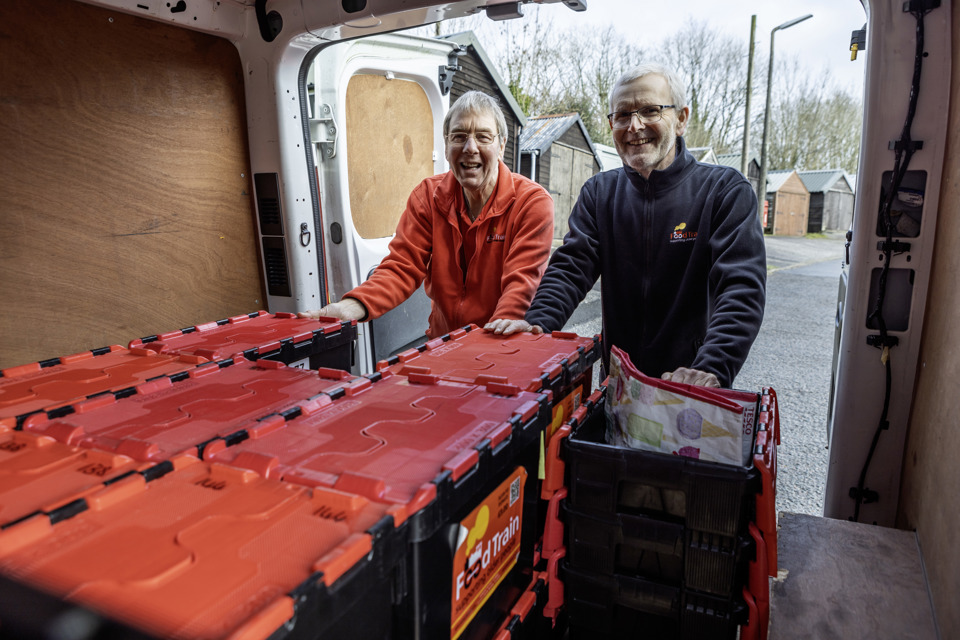








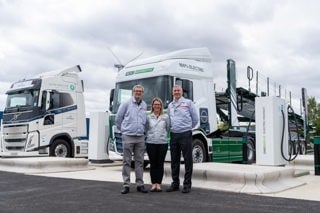












Login to comment
Comments
No comments have been made yet.